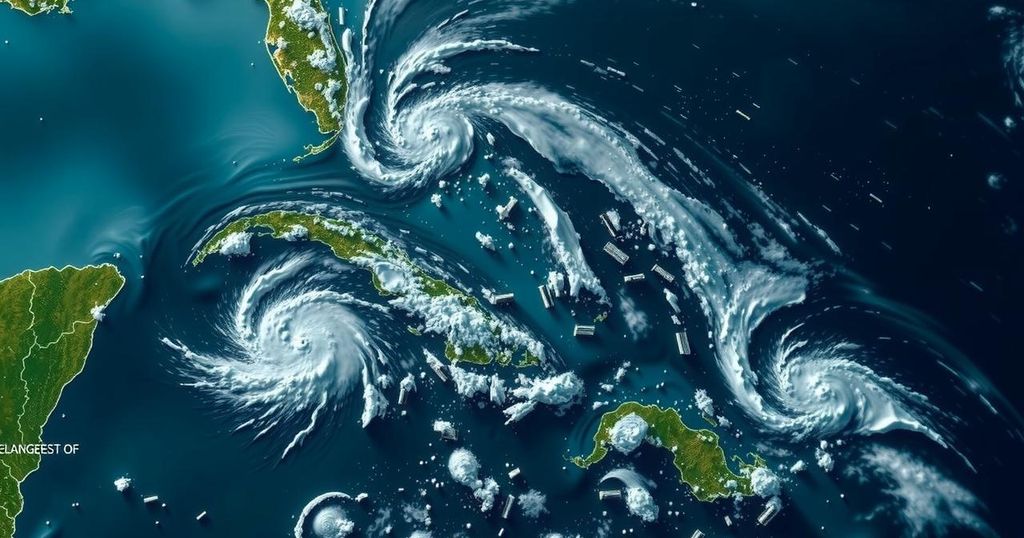2024 Atlantic Hurricane Season Ends with Record Storms and Damage

The 2024 Atlantic hurricane season ended with 11 hurricanes, exceeding the average of seven, and caused extensive damage along the U.S. Gulf Coast. Notable events included Hurricane Beryl, the first Category 4 storm in June, and Hurricane Helene, the deadliest storm since Katrina. The season highlighted the link between climate change and the intensity of hurricanes.
The 2024 Atlantic hurricane season concluded, marking a record-setting year with 11 hurricanes, which significantly exceeded the seven-hurricane average. This season, characterized as “crazy busy” by meteorologists, was influenced by unusually high ocean temperatures, leading to hurricanes that impacted regions far from their landfall points, notably on the U.S. Gulf Coast.
Among the notable events was Hurricane Beryl, the first Category 4 hurricane ever recorded in June, which devastated Grenada’s Carriacou island and caused destruction in Jamaica, resulting in at least two fatalities. This season also witnessed the unprecedented early formation of a Category 5 hurricane, which compounded the rarity of such storms forming before September 1.
Hurricane Helene struck in September, leaving catastrophic damage across several southeastern states, and was labeled the deadliest storm since Hurricane Katrina in 2005, causing over 200 fatalities and extensive damages estimated at $48.8 billion in North Carolina alone. This hurricane season also recorded record rainfall in several cities, marking an exceptionally wet September and October.
In October, Hurricane Milton emerged with maximum wind speeds of 180 mph, positioning it among the strongest hurricanes ever noted in the Gulf of Mexico, second only to Hurricane Rita of 2005. Lastly, Hurricane Rafael, which reached 120 mph shortly after landfall in Cuba, highlighted the season’s continued volatility as it exacerbated recovery efforts hampered by prior storms.
The interplay between rising ocean temperatures and hurricane formation has become increasingly evident, with meteorologists emphasizing that such climatic conditions are now contributing to more extreme storms occurring outside traditional timelines. Brian McNoldy, a hurricane researcher at the University of Miami, remarked on the unprecedented nature of these storms, underscoring the potential influence of climate change on hurricane frequency and intensity.
The season has illustrated the growing challenges posed by climate-related changes, emphasizing the urgency for further research and preparedness for future hurricane seasons.
The Atlantic hurricane season is a crucial period for monitoring and preparing for severe weather events that can lead to significant loss of life and property damage. Typically defined to run from June 1 to November 30 each year, this season is characterized by fluctuations in storm activity, influenced by various environmental factors including ocean temperatures, atmospheric conditions, and climatic changes. The 2024 season was particularly notable for its higher-than-average storm count and unprecedented occurrences in hurricane strength and timing, raising concerns among experts about the broader impacts of climate change on weather patterns.
The conclusion of the 2024 Atlantic hurricane season has drawn attention to the increasing severity and frequency of storms, driven by rising ocean temperatures and climate change. The season emphasized the need for heightened awareness and preparedness in susceptible regions, as extreme weather events are becoming more common and challenging to predict. Observations from this year’s storms, particularly the unprecedented occurrences of early and late-season hurricanes, provide essential insights into future meteorological research and disaster management strategies.
Original Source: wsvn.com






